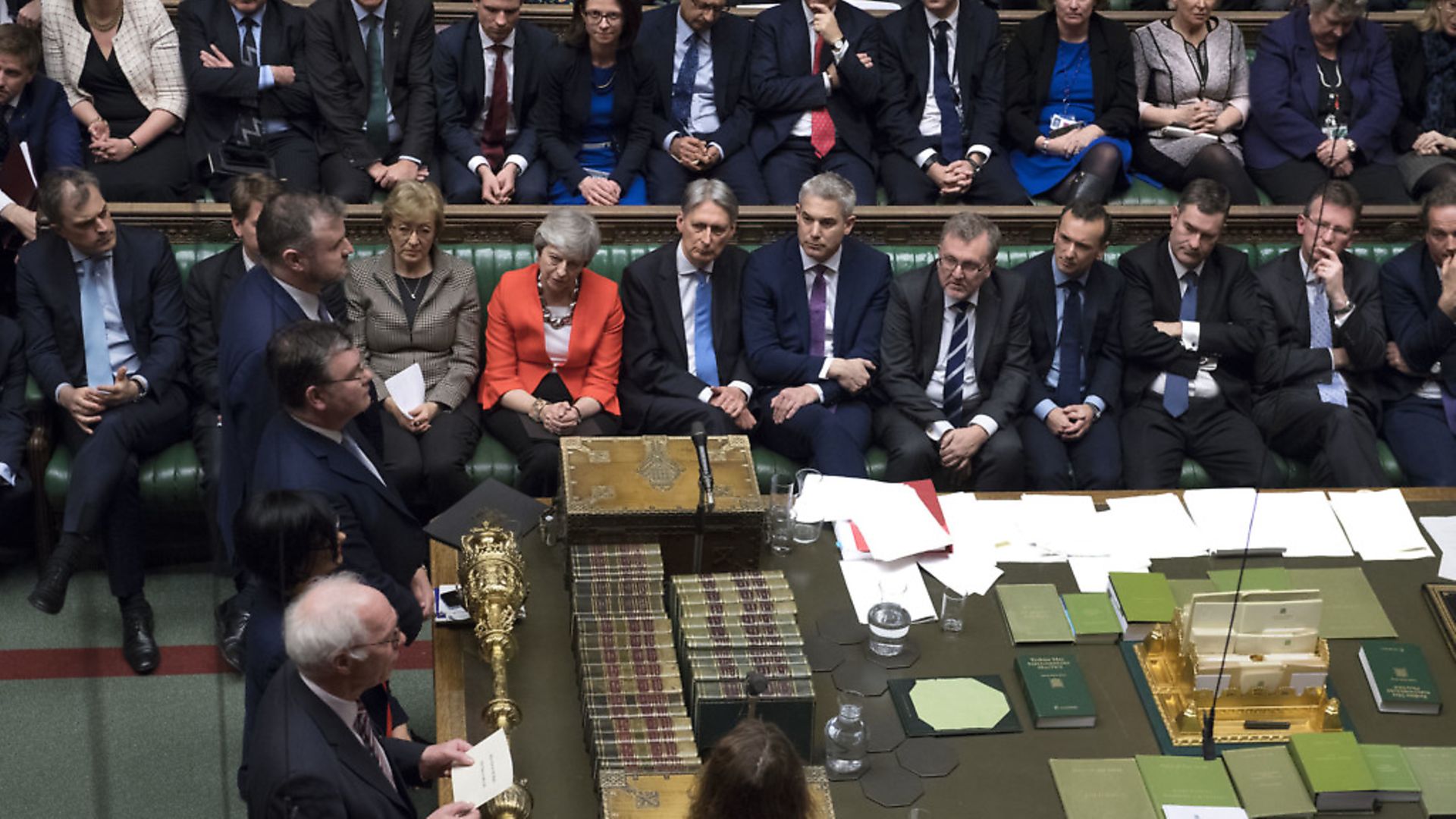
A series of amendments have been tabled to Theresa May’s motion on a no-deal Brexit and it will now be up to speaker John Bercow to select a number for debate.
The prime minister’s motion states that the House declines to approve Brexit on March 29 in the absence of a Withdrawal Agreement or future relationship framework, but notes that no-deal remains the default unless both the UK and EU ratify an agreement.
The amendments on the order paper are:
– No no-deal ever
Tabled by Midlands MPs Caroline Spelman and Jack Dromey and backed by senior figures from all sides of the Commons including Sir Oliver Letwin, Hilary Benn, Nick Boles and Yvette Cooper, as well as all 11 members of the new Independent Group, this amendment simply rejects a no-deal Brexit at any time and under any circumstances.
– Revoke Article 50
Tabled by the Scottish National Party’s Angus MacNeil and backed by europhile MPs including Tory grandee Kenneth Clarke, Labour’s Keith Vaz and Plaid Cymru’s Westminster leader Liz Saville Roberts, this amendment calls on the government to halt Brexit by revoking its notice of intention to leave under Article 50 of the EU treaties.
– Plaid Cymru
Tabled by the Welsh nationalist party’s four MPs, this would require the government to extend Article 50 negotiations to 2021 and hold a referendum at the end of that period on leaving with a deal or remaining in the EU.
– Independent Group
Backed by all 11 former Labour and Tory MPs who defected to form The Independent Group, this would rule out no-deal under any circumstances and state the the Commons has the power to instruct the prime minister to request an extension of negotiations, revoke Article 50 or hold a second referendum. A second Independent Group amendment simply rules out leaving without a Withdrawal Agreement or future relationship framework.
– Malthouse Compromise
Tabled by a group of Conservative MPs drawn from both Leave and Remain wings of the party, this amendment calls for a delay to Brexit day from March 29 to May 22 to give time for preparations to leave without a deal. It says the government should then offer a ‘standstill’ agreement with the EU and its member states, lasting up to the end of 2021 at the latest, during which the UK would pay into EU budgets and observe legal obligations while a permanent relationship is negotiated.
Warning: Illegal string offset 'link_id' in /mnt/storage/stage/www/wp-includes/bookmark.php on line 357
Notice: Trying to get property 'link_id' of non-object in /mnt/storage/stage/www/wp-includes/bookmark.php on line 37






